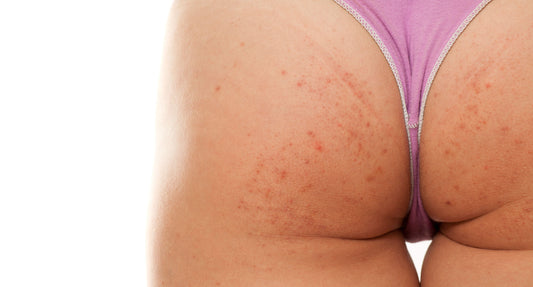The splash of warm water hits the bottom of the bath, as it slowly fills up and the fluffy bubbles are looking very inviting. As you remove your clothes and look in the mirror, you notice a few flakes on your nose. Peering closer, you see a small cluster of blackheads on your forehead. You raise your eyebrows and sigh. It must be the chill in the air outside, playing havoc with your skin.
In this post, we will let you know:
- What exfoliating does for your skin
- Why you should exfoliate your body
- Whether your skin type matters
- How to exfoliate
- How often you should exfoliate your face and body
What does exfoliating do for my skin?
You probably know that good, thorough, regular skin care is important, and you’ve almost certainly heard the word ‘exfoliation’ before. But what is exfoliating? The Cambridge English Dictionary defines exfoliation as ‘the process of removing dead skin cells from the surface of the skin, in order to improve its appearance’ and it’s usually done using either chemicals, a granular substance such as an exfoliating scrub or an exfoliation tool.
Our skin is our largest organ and it’s made up of several layers. The layers that we can see are collectively called the epidermis, with the very top layer being the stratum corneum. This is made up of around 10 to 30 layers of dead skin cells. The body naturally sheds dead skin cells roughly on a monthly basis to make room for new ones. Areas of dry, flaky skin or blocked pores are a sign that some skin cells haven’t shed completely but adequate exfoliation and skin care should prevent this from happening.
Why should I exfoliate my body?
So, if your skin sheds dead cells monthly by itself, why should I spend time scrubbing my face with a pricey exfoliating scrub? Well, there’s no doubt that exfoliating our face and body eliminates annoying, itchy patches of dry skin but there are several other excellent reasons why you should use a face exfoliator and exfoliate your body. They include:
- The process of shedding skin cells slows down as we get older, so the skin can start to look dull and dry, if dead cells start to build up. Exfoliation allows new skin cells to emerge and therefore results in smooth, dewy skin.
- It unclogs the pores, which helps to limit breakouts and pore appearance.
- There is also evidence that long-term regular exfoliation can boost the production of collagen, the protein responsible for skin elasticity.
- Exfoliating also evens out the skin’s texture and smooths out the surface. So, taking the time to exfoliate your face means that make-up will sit the way you want it to, won’t settle into any fine lines and won’t look cakey.
- Regular exfoliation allows the wonderful ingredients in your skincare products to really work.
Our Exfoliating body bar is packed with nutritious goodness that we know your skin will love. However, if it’s met by a thick barricade of dead skin cells as soon as you use it, there’s a chance it may not be able to break through and be fully absorbed. So, learning how to exfoliate is vital for soft, smooth, healthy skin.
Does my skin type matter?
But how you exfoliate comes with some considerations, namely your skin type. Certain skin types aren’t suitable for some methods of exfoliation, so it’s important that you identify yours to limit the risk of irritation or any other problems and ensure that your exfoliator works its best. So, here’s our round-up for the best choice of exfoliator for each of the most common skin types:
Exfoliating normal skin
Whether chemical or manual, normal skin can generally handle whichever method of exfoliation you prefer. Our Exfoliating body bar is perfect for you. So lucky!
Exfoliating dry skin
Face exfoliators containing AHAs (alpha hydroxy acids) are the best at breaking through the surface of rough skin and ensuring that the skin gets the hydration it needs.
Exfoliating oily skin
Both chemical and stronger manual exfoliators such as brushes can be used on oily skin. Home-made exfoliating scrubs may also work a treat.
Exfoliating combination skin
You may need to use different types of exfoliator on different patches of skin. Consider chemical exfoliation on oily places and a mild AHA exfoliator on dryer areas.
Exfoliating sensitive skin
If your skin regularly gets irritated by new products, look for a face exfoliator with BHAs (beta hydroxy acids), as these are considered less irritant than other chemicals or ingredients. Be sure to talk to your dermatologist before introducing new products to your sensitive skin.
Exfoliating acne-prone skin
Ingredients such as glycolic acid, salicylic acid or retinoids are good for skin with acne. Avoid exfoliation tools like brushes and cleansing pads, as these can further irritate inflamed skin.
How do I exfoliate?
Great, but what does the exfoliation process look like? While you can exfoliate any part of your body, it is recommended that you are much more gentle on the face and neck and on areas of sensitive skin. Therefore, how you exfoliate will differ slightly, depending on which part of the body you’re working on.
Exfoliating the face
When using a face exfoliator scrub, apply it gently with a finger and rub in small, circular motions. If you’re using a chemical exfoliator containing AHAs or BHAs, apply to your face with a cotton pad or cloth. Rinse with warm water and finish off with moisturiser.
Exfoliating the arms or legs
For larger areas of the body such as your arms or legs, a brush or sponge is the simplest way of applying exfoliating scrub using short, light strokes. If you have sensitive or acne-prone skin, you should apply with your fingers as tools may be too rough on your skin. Lather up the exfoliating scrub while in the shower and rinse away with warm water.
Exfoliating the bikini line and sensitive areas
More delicate or sensitive areas such as the bikini line can be exfoliated with a brush and scrub but only if the skin is softened in warm water first. Be sure to wash the area afterwards to ensure the scrub is fully removed.
Professional Exfoliation and Chemical Peels
If you’re interested in making a bigger change to your skin’s appearance, you can undergo a professional exfoliation procedure with a dermatologist or beautician. Chemical peels involve a chemical solution being applied to the skin and several layers of dead skin cells being removed. Microdermabrasion involves a specialist using a device that performs a deep exfoliation for the face and neck. There are also several laser procedures available, which exfoliate the body and encourage collagen production. Always check with a medical professional to see if these options are viable for your skin type.
<h2id="5">How often should I exfoliate my face and body?It is easy to over-exfoliate, particularly on sensitive areas such as the face. It is recommended that you don’t exfoliate the face more than once or twice a week. Additionally, some forms of chemical exfoliation are quite strong, so these should be used less often than gentler scrubs. Oily skin may require more regular exfoliation than other skin types, but it is important not to overdo it. Exfoliating too regularly can result in redness and irritation, so it’s vital that you get the balance right.
Beauty Kin has your back!
Our Exfoliating body bar is perfect for unclogging pores and ridding the body of impurities. It’s fantastically gentle on the skin, making it suitable for all skin types while containing active ingredients that remove dead skin cells from the surface.
L-lactic acid and ground olive stone softly prep your body for shaving or moisturising, revealing a shiny new canvas of skin for other excellent products to work on.
Your soft, smooth skin will enjoy a fresh, citrus scent as the grapefruit in our Exfoliating bar gives dull, dry skin a new burst of energy.

Whether you choose a manual at-home method with an exfoliating scrub, chemical exfoliation or even a more intense, professional procedure, exfoliating your face and body should be an essential part of your skin care routine. Next time you’re about to step into that very inviting, warm bath, consider treating your skin and yourself. Next time you’re examining your reflection in the mirror, think about gently scrubbing your face and unveiling the beautiful, new skin underneath. Ready for your glow-up?




